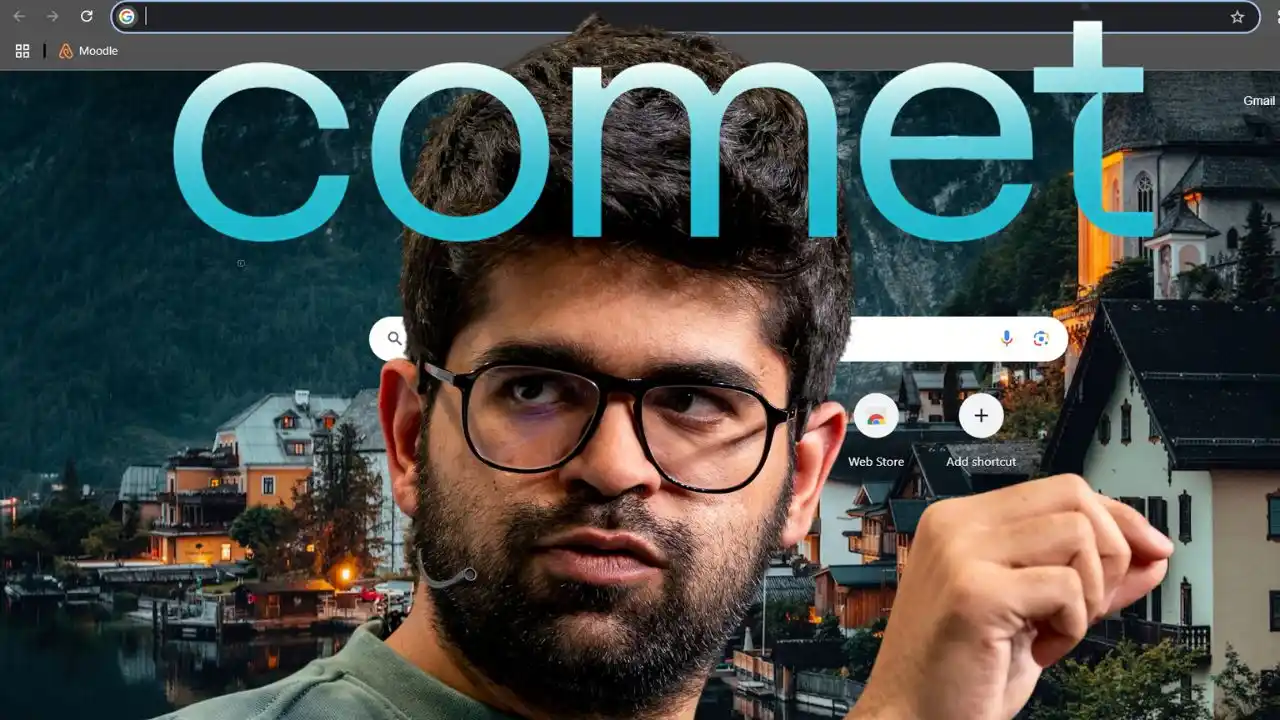
Meet Comet, Perplexity’s new AI browser: How’s it different?
How did your country report this? Share your view in the comments.
Diverging Reports Breakdown
Meet Comet, Perplexity’s new AI browser: How’s it different?
Comet is the upcoming AI-powered browser from Perplexity. It is built around the same AI engine that powers the company’s popular answer-first search tool. Instead of confining smart responses to a search bar, Comet spreads them across your entire browsing experience. Comet is designed to help users learn faster, think deeper, and browse smarter. It’s not a full replacement for all the extension-rich or developer-friendly features power users might expect from Chrome or Edge. But it’s aiming at a different goal: helping users learn Faster, Think smarter, and Use the Web smarter. The web is no longer just a static archive of information, it’s a messy, dynamic, constantly shifting ecosystem. Navigating that requires more than bookmarks and tabs. It requires guidance, context, and intelligence. So while Chrome still rules by speed, and Edge banks on Copilot integrations, Comet is quietly carving out a new lane.
For decades, browsing has looked roughly the same. You open a search engine, type in a few keywords, scroll through blue links, click, scan, maybe open ten tabs, and repeat until your curiosity, or your patience, runs out. Chrome and Microsoft Edge have ruled this space, optimising for speed, sync, and tabs. But they still treat the web as a library of pages, not as something that can be actively understood. Comet flips that model on its head.
Also read: Apple eyes Perplexity, explores AI deals with Mira Murati and other startups
Comet: From search companion to intelligent assistant
At its core, Comet is built around the same AI engine that powers Perplexity’s popular answer-first search tool. But instead of confining those smart responses to a search bar, Comet spreads them across your entire browsing experience. It doesn’t just help you find information, it helps you work with it, question it, and move through it more intelligently.
Imagine reading a dense news article or a technical blog post. In Chrome, you’d likely open a new tab to Google unfamiliar terms or background context. In Comet, you can simply highlight the text and the AI will break it down, explain it in plain language, and link to sources. It’s as if your browser doubles as a personal tutor.
Also read: Opera’s new AI browser Neon: 3 Things you should know
Where Edge integrates Microsoft Copilot as a sidebar, Comet is the assistant. It’s context-aware and conversation-ready. You can ask questions mid-browse, generate summaries of long pages, or even start a research thread where Comet tracks your queries, answers, and sources in one neat timeline. These “threads” are like living documents, part browsing history, part study guide. This deep integration is what sets Comet apart. Chrome remains fast and powerful, but it’s designed for passive navigation: you do the searching, the scanning, the clicking. Edge has tried to bridge that gap with AI tools as add-ons rather than essentials. Comet, on the other hand, feels like it was built for a future where the browser doesn’t just fetch pages, it interprets them.
Comet: Designed for curiosity, built for trust
Comet also leans heavily into transparency. One of the strengths of Perplexity’s search is its use of source citations in every response, and that ethos continues here. Instead of delivering vague AI answers, Comet shows you where it got the information, linking directly to the original sites. In an internet climate increasingly riddled with misinformation, this is more than just a feature.
Still, Comet isn’t trying to replace everything just yet. It’s early days, and it’s not a full replacement for all the extension-rich or developer-friendly features power users might expect from Chrome or Edge. But it’s aiming at a different goal: helping users learn faster, think deeper, and browse smarter.
In a way, Comet reflects the changing nature of online interaction itself. The web is no longer just a static archive of information, it’s a messy, dynamic, constantly shifting ecosystem. Navigating that requires more than bookmarks and tabs. It requires guidance, context, and intelligence. So while Chrome still rules by speed, and Edge banks on Copilot integrations, Comet is quietly carving out a new lane, one where the browser is your co-pilot from the first question to the final insight.
If Comet delivers on its promise, we may look back one day and wonder why we ever settled for just surfing the web when we could have had a conversation with it.
Also read: OpenAI may be planning to take on Google Chrome with its own browser
Source: https://www.digit.in/features/general/meet-comet-perplexitys-new-ai-browser-hows-it-different.html
